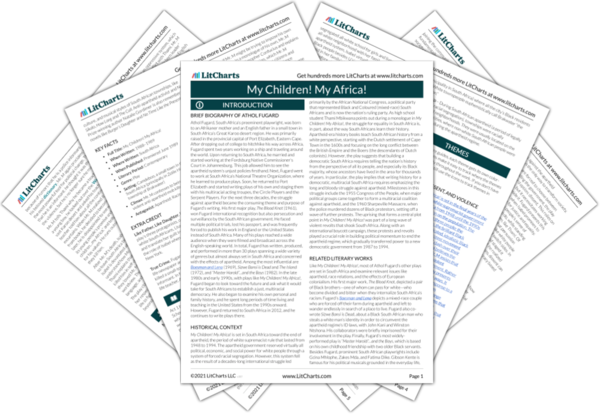Although Mr. M and Thami agree that the apartheid education system is oppressive, Mr. M still thinks that it’s possible to advance the cause of equality and justice from within that system. This is because, while the
content of the government curriculum may have been oppressive, the
skills that students can learn through education—critical thinking and analysis—will serve them throughout their lives, in a variety of contexts. If words are “magical,” then education is a way to capture this magic. Mr. M also points out a clear problem with the Comrades’ strategy: while violence can directly target the apartheid government, its scope is limited, and it quickly fades. In contrast, words can travel across space and time, multiplying their influence in the process. While Black freedom fighters are badly outmatched in terms of weapons, they are nonetheless white people’s equals in terms of reason and persuasion. This is why Mr. M so desperately wants Thami to go to college: he doesn’t just think that nonviolent protest is better than violent revolt, but he also thinks that it’s the
only effective way to change society.
